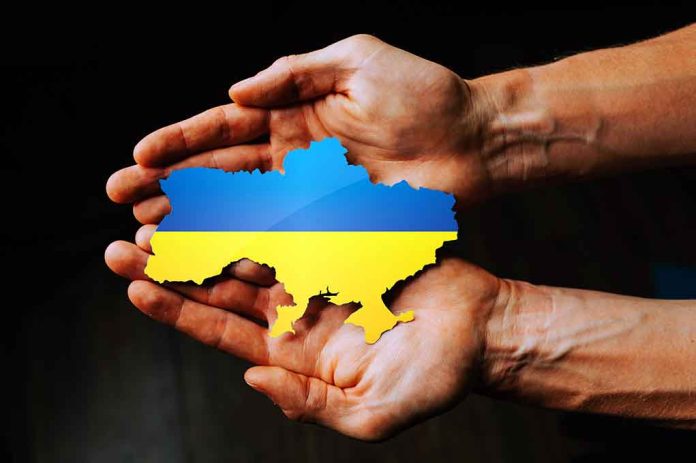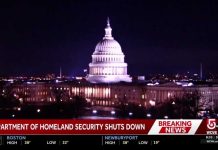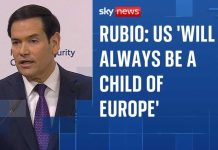
President Zelenskyy calls for Trump to implement “strong new sanctions” against Russia as Moscow rejects Ukraine’s proposed 30-day ceasefire and peace talks in Istanbul show signs of stalling.
Key Takeaways
- Zelenskyy urged President Trump to impose a “strong new package” of sanctions if Russia derails peace negotiations in Istanbul
- Russia has rejected Ukraine’s proposed 30-day ceasefire, offering only a “game of rhetoric” with a limited 2-3 day partial cessation
- Trump is waiting to assess Putin’s seriousness about ending the war before implementing new sanctions
- Zelenskyy specifically called for sanctions targeting Russian energy, oil tankers, banks, and the financial sector
- Ukraine maintains that Russia should have no veto power over NATO decisions or expansion
Zelenskyy Pushes for Stronger American Sanctions
Ukrainian President Volodymyr Zelenskyy has directly called on President Donald Trump to implement stringent new sanctions against Russia if upcoming peace talks in Istanbul fail to produce meaningful results. Speaking at a summit of the Bucharest Nine and Nordic leaders in Vilnius, Zelenskyy emphasized the critical need for decisive American action to counter Russian intransigence. The Ukrainian leader specifically targeted Russian energy, oil tankers, and financial institutions as appropriate sectors for new punitive measures that could compel Moscow to engage more seriously in peace negotiations.
“If the Istanbul meeting brings nothing, that clearly means strong new sanctions are urgently needed — from the EU’s 18th package, and from the United States specifically, the strongest sanctions President Trump promised,” said Zelenskyy.
The Trump administration has thus far held off on implementing new sanctions against Russia, hoping to create space for potential peace negotiations to succeed. President Trump indicated that the United States would soon evaluate whether Russian President Vladimir Putin is genuinely interested in ending the conflict. This measured approach aligns with Trump’s campaign promises to quickly end the war in Ukraine, though the administration appears to be keeping sanctions as a powerful leverage point should diplomatic efforts falter.
Russia Rejects Meaningful Ceasefire Proposal
The urgency behind Zelenskyy’s appeal comes after Russia declined Ukraine’s proposal for a 30-day cessation of hostilities. Instead, Moscow countered with what Zelenskyy described as a “game of rhetoric” – offering only a limited two or three-day partial ceasefire that falls far short of Ukraine’s requirements for meaningful peace talks. This rejection signals Russia’s continued reluctance to engage in substantive negotiations despite international pressure, further necessitating the economic leverage that only strengthened American sanctions could provide.
“One of the key principles of European security is that Russia must not have veto power over NATO decisions or influence over the allies or its members,” Zelenskyy emphasized.
The upcoming Istanbul talks are viewed with skepticism by many observers, as Russia continues to make maximalist demands that Ukraine finds unacceptable. Among Russia’s positions is the requirement for Western nations to halt military support for Ukraine – a demand that would effectively leave Ukraine vulnerable to continued Russian aggression. Moscow has also failed to submit a formal memorandum outlining its position for the peace talks, raising further questions about its commitment to the process.
Trump’s Cautious Approach to New Sanctions
President Trump has signaled a deliberate approach to implementing new sanctions, prioritizing the potential for a diplomatic breakthrough. “If I think I’m close to getting a deal, I don’t want to screw it up by doing that,” Trump stated regarding new sanctions. This stance reflects the administration’s focus on ending the conflict through direct engagement rather than immediate escalation of economic pressure, though Trump has kept sanctions firmly on the table as leverage should peace talks stall.
Ukraine’s delegation to the Istanbul talks has presented several concrete proposals, including the 30-day ceasefire and the return of Ukrainian children forcibly deported to Russia. These humanitarian considerations represent an important starting point for negotiations, though Russia’s lukewarm response to these basic measures raises serious concerns about the prospects for more comprehensive peace agreements. With NATO’s upcoming summit expected to deliver a message of unity and strength, the pressure on Russia to engage meaningfully in peace talks continues to build from multiple directions.




